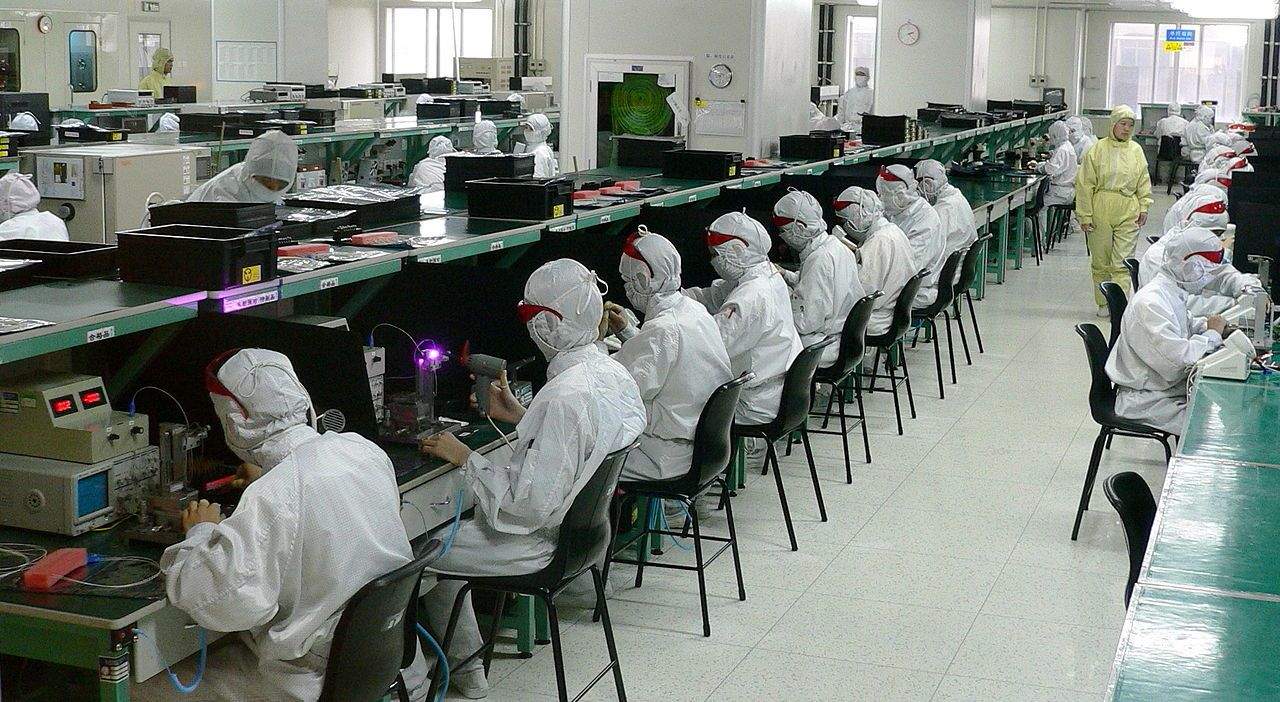NYU graduate student Dejian Zeng pulled back the curtain on Apple’s factories in a tell-all that details his six-week stint working on an iPhone assembly line in China.
Zeng’s lengthy interview reveals details on everything from conditions inside a Pegatron dormitory to how Apple slowly shifts production for new iPhone models. Some of the most interesting bits, though, are the tiny details that show how working in an Apple factory could drive you crazy.
Here are the wildest details Zeng revealed.
The food sucks
When you’re working long days in an iPhone factory, a short meal break can bust the tedium and fill your gut. Just don’t expect an Instagram-ready gourmet meal or a free lunch like those softies in Silicon Valley get.
“I wouldn’t say that [the food was high quality],” Zeng told Business Insider. “The chicken that I get … I never see the breasts or thigh. It’s always the neck or certain parts that you can’t identify. So I wouldn’t say that’s a very good meal. But it keeps you full, and you’re very hungry so it keeps you full anyway.”
Zeng said factory workers got charged 5 or 8 yuan (between 75 cents and $1.15) for the mystery meat. “It’s reasonable,” he said. “Not very good, but you have no other choice.”
Security is insane
Everybody knows Apple guards its secrets like a pit bull, and that definitely holds true for the factory floor. But when a product launch looms, things get even more strict.
“They increased the sensitivity of the metal detectors,” Zeng said of the transition period between the iPhone 6s and iPhone 7. “So you know some girls have bras? They couldn’t pass the door because they had the metal in the bra, so a lot of the girls had to change all of a sudden that day because they increased the sensitivity. And then you passed two security checks. There’s a lot of security checks.”
Dorms get cramped
The iPhone factory isn’t the only place where comfort takes a backseat to Chinese efficiency.
“I wake up in a dorm shared by eight people,” Zeng said of his time working for Pegatron. “The dorm is not on the factory campus — it’s in a place about 10 minutes’ drive, and they have a shuttle bus for us.”
The work is monotonous
Zeng’s time on the iPhone assembly line was literally a screw job.
“I put the speaker on the case, and I put a screw on it,” he said. “The [iPhone] housing — we call it the back case — is moving on the assembly line, and that’s when we pick it up, and now we get one screw from the screw feeder, and then we put it on the iPhone and then put it back, and it goes to the next station.”
At first it’s hard to keep up with the pace. But after you get used to it, things just get super-boring.
“In the end I can even do this screw by closing my eyes,” he said. “It is just like that. So after that, you get a lot of time that you have nothing to do. That’s when people feel very annoyed.”
Overtime is sorta mandatory
Working overtime means more money, which is welcomed by many workers, but Zeng said it’s basically involuntary.
“You can’t leave easily. And then every time you ask, ‘Can I leave,’ they would just say, ‘You have to work on the assembly line.’ And so you know that every station needs to have somebody doing it. And if you leave, who is going to do it? It’s not easy to ask to not do overtime…. Workers don’t have a choice. If I don’t want to work, if I’m really tired today and I don’t want to work, I can’t do that.”
Getting Wi-Fi is an expensive hassle
You can’t listen to music or use a phone inside the Pegatron factory. But once you’re off the clock, things get better, right? Um, maybe not.
“The dorms provide Wi-Fi,” Zeng said. “But to access the Wi-Fi, you need to do something. You need to either download some apps for them or click something — comments or something — to earn some virtual coins. You use the coins to get on the Wi-Fi. Twenty-four hours is 20 coins. And then downloading apps sometimes are like 20 to 30 coins or something.”
Zeng said workers paid about 5 yuan for 100 coins, giving the dorms an income stream. “It’s like a business,” he said.
Your training gets ‘evaluated’
Workers go through training on things like translating Chinese terms into English and even weird topics like “building personal relationships and how to manage your money,” Zeng said. He suspects Apple mandates that coursework, since the training gets graded — although Cupertino probably shouldn’t trust the results.
“They gave us an evaluation: ‘How did you feel about the training?'” he said. “They are very careful with that piece of paper. They said, ‘Don’t make any mistakes. We need this paper to be very clean with no modifications on it.’ It was a scale where 1 was the worst and 5 was the best. They said we could do 4 or 5. And so everybody did 4 and 5 and they submitted it.”
Source: Business Insider


